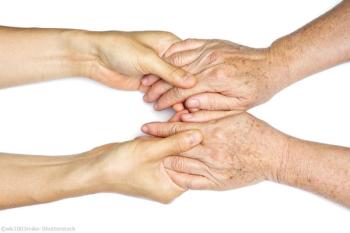
- ONCOLOGY Nurse Edition Vol 22 No 8
- Volume 22
- Issue 8
Diarrhea in Cancer Patients
When you have cancer, you can get diarrhea for a number of reasons. Most often, it is a side effect of treatments, such as chemotherapy or radiation therapy.
Understanding Your Symptoms
When you have cancer, you can get diarrhea for a number of reasons. Most often, it is a side effect of treatments, such as chemotherapy or radiation therapy.
You may feel embarrassed telling your doctor and nurse about it, but it is important to tell them anyway. They can help you get the diarrhea under control so you can start feeling better.
Doctors say you may have diarrhea if you have loose, watery stools and at least 1 more bowel movement a day than usual. You may also have stomach cramps and leaking of stool, and you may have to get up during the night to pass stool.
Is Diarrhea Serious?
Diarrhea can keep you running to the bathroom and make you miserable. On top of that, your body loses a lot of fluid quickly, which can cause dehydration, a serious problem. Also, when you have diarrhea, the skin in your anal area can get raw and break down. That can be serious, too, so it is important to treat diarrhea right away.
How is Diarrhea Treated?
The treatment for diarrhea depends on how severe it is. If it’s very mild, just changing your diet may stop it. More serious diarrhea requires medication and, sometimes, intravenous fluids to replace the fluid you have lost. Your doctor may adjust your cancer treatment if it is causing your diarrhea.
Practical Tips for Patients
• Drink plenty of clear liquids to get your fluid levels back up to where they should be. Sports drinks,
clear juices, gelatin, and broth are better than water because they have sugar and salt in them. Recommended juices are apricot, peach, and pear nectar, and cranberry juice. Apple juice can induce diarrhea; orange, tomato, and pineapple juices are too acidic; and grapefruit juice should be avoided because of potential interactions with chemotherapy and other medications.
• Eat bland foods that are low in fiber. Bananas, eggs (poached or boiled), potatoes (mashed or baked, no butter), toast, applesauce, and rice are good choices. The BRAT diet (bananas, rice, applesauce, and toast) must be stopped after 72 hours, as it does not provide complete nutrition.
• Avoid spicy or fried foods, coffee, alcohol, dairy products, and foods that cause gas.
• After a bowel movement, gently clean your anal area with mild soap and water, or with moist wipes such as Baby Wipes or towelettes.
• Apply medicated cream to your anal area to soothe and protect the skin. Ask your doctor or nurse what type to use.
• Take your medication for diarrhea as your doctor or nurse advises you.
Articles in this issue
over 17 years ago
Review of "Physical Late Effects in Adult Cancer Survivors"over 17 years ago
Management of a Patient With Inflammatory Breast Cancerover 17 years ago
Cancer Care for Now … and Laterover 17 years ago
Drug Essentials Levoleucovorin, a Cytoprotectantover 17 years ago
Physical Late Effects in Adult Cancer Survivorsover 17 years ago
Commentary (Cardonick): Care of the Pregnant Patient With Cancerover 17 years ago
Care of the Pregnant Patient With Canceralmost 18 years ago
Quality of Life in Myelodysplastic SyndromesNewsletter
Stay up to date on recent advances in the multidisciplinary approach to cancer.




































